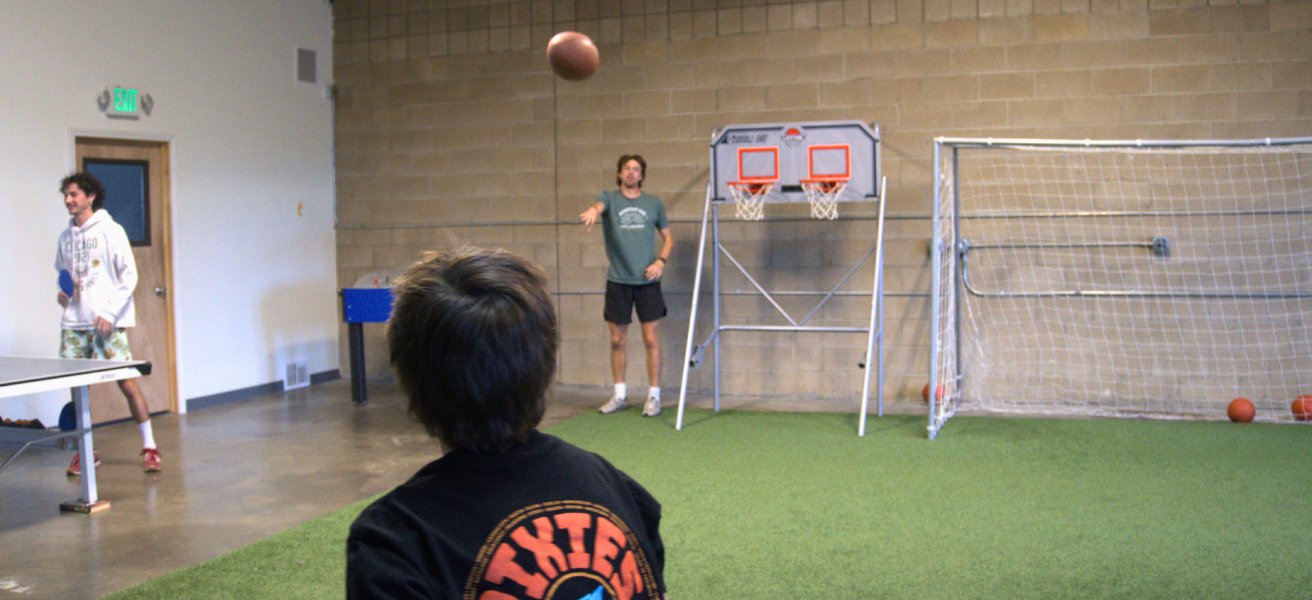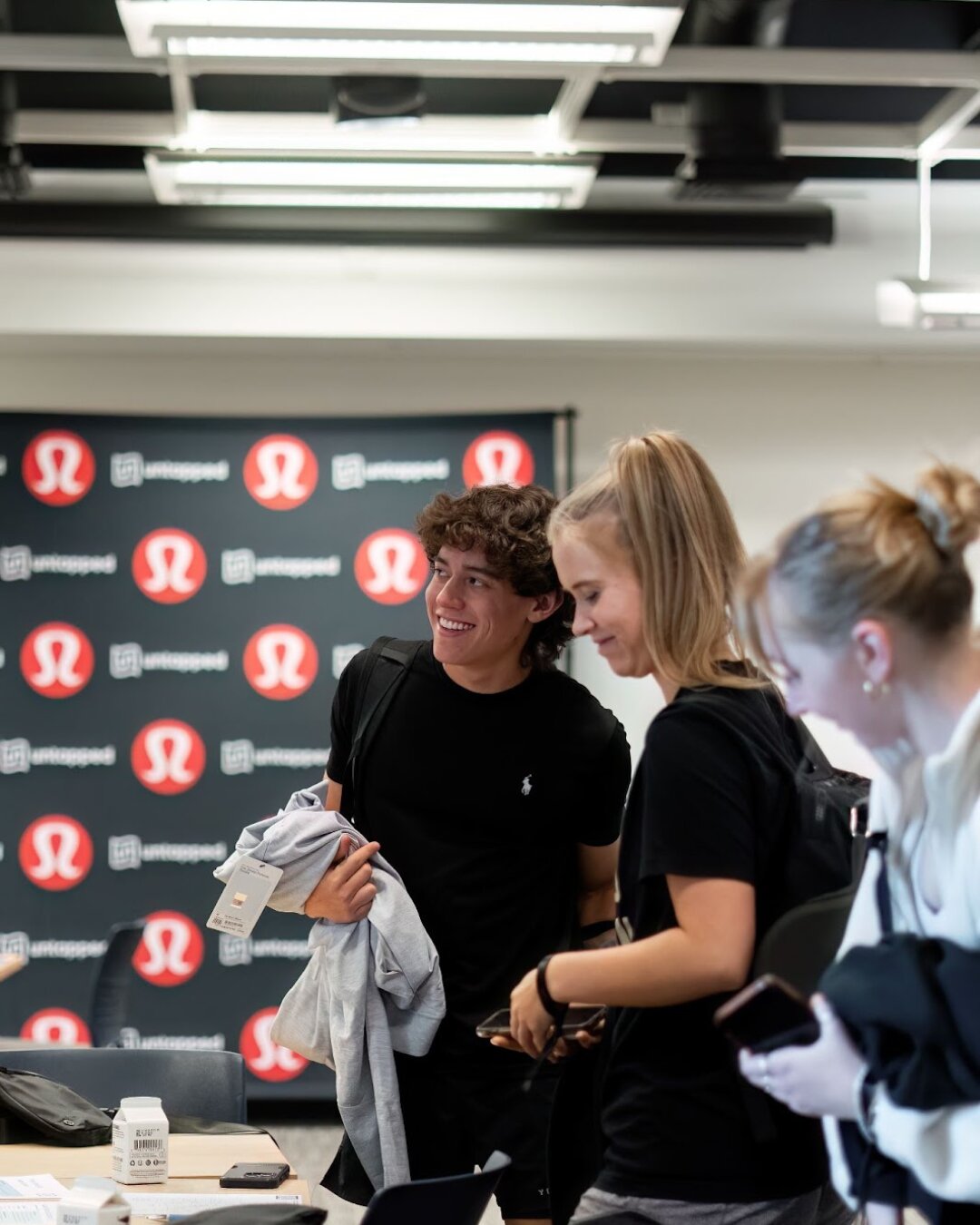Jake stared at his laptop screen, his mind racing. Tomorrow he had three assignments due, a major exam, and a game against their rivals. As a varsity running back and honors student, he felt the weight of expectations crashing down on him.
In recent years, we’ve seen a significant increase in stress and anxiety among student-athletes. The pressure to excel in academics and athletics has created challenges that many struggle to navigate. Between our own experiences and working with many student-athletes, we have learned effective strategies to help manage this stress and thrive in both arenas.
The Growing Challenge of Student-Athlete Stress
Recent studies have shown a significant increase in stress and anxiety among student-athletes. According to the NCAA, about 30% of student-athletes report feeling extremely overwhelmed during their college career. Many more report consistently feeling overwhelmed, stressed, and not performing to expectations.
The Pressure Cooker: Understanding Student-Athlete Stress
As a student-athlete, your daily life is like trying to keep two full-time jobs running smoothly. On one side, you have your academic responsibilities:
- Maintaining a high GPA to stay eligible or maintain your scholarship
- Keeping up with rigorous coursework
- Planning for your future career
On the other side, you have the athletic demands:
- Consistent high performance in your sport
- Rigorous training schedules
- Balancing team commitments with personal life
- Learning and memorizing complex plays and strategies
Managing these dual roles can feel like you’re constantly switching hats, never quite able to take one off completely. It’s no wonder that many student-athletes find themselves feeling stretched thin and stressed.

A Champion’s Struggle: Michael Phelps’ Story
Even the greatest athletes face these challenges. Michael Phelps is the most decorated Olympian of all time. Despite his incredible success in the pool, Phelps struggled with balancing the demands of his athletic career with his personal life and mental well-being.
In a 2018 interview, Phelps revealed the intense pressure he faced: “I have a very strict schedule. Every minute of my day is planned out to make sure I get everything done that I need to.” This level of rigorous scheduling was necessary to maintain his world-class performance, but it also took a toll on his mental health.
Phelps’ story highlights an important truth: no matter how successful you are, e, it’s normal to feel overwhelmed by the demands of being a student-athlete. What matters is how you address these feelings and develop strategies to manage them.
Another top athlete who understands the challenges of balance is Olympic champion skier Mikaela Shiffrin. She emphasizes the importance of prioritization: “Balancing training, racing, and personal time is all about prioritizing. Sometimes, you have to make tough decisions about what’s most important in that moment.”
These insights from world-class athletes underscore a point for all student-athletes: learning to balance your commitments and prioritize your time is not just important for your success—it’s also needed for your well-being.
You might think, “But I’m already doing my best to balance everything. How can I possibly do more?” It’s a valid concern, and you’re not alone in feeling this way. The strategies we’re about to discuss aren’t about adding more—they’re about making what’s already on your plate more manageable.

Strategies for Managing Stress
Just as you’d prepare for a big game by studying film, running drills, and strategizing with your coach, you need to approach your life with the same level of preparation and planning. Consider the following techniques as a way to maximize your time:
- Improve Time Management
Time management is learning to balance academics and athletics. Here are recommendations:
- Create a structured schedule: Map out your week, including classes, practice times, study sessions, and personal time. Having a visual representation of your commitments can help you feel more in control.
- Try time blocking: Allocate specific time slots for different tasks. For example, dedicate 7-9 PM every weeknight to studying, or use the hour after practice to review class notes.
- Prioritize tasks: Use techniques to categorize tasks based on urgency and importance. This helps you focus on what matters.
- Implement Structure and Accountability
Structure and accountability may sound terrible, but they are the keys to keeping you on track and opening up more free time. Structure and accountability can be implemented by:
- Create a schedule: Designate specific times for studying, training, and personal activities. This will help prevent procrastination and reduce stress about when to do what.
- Find accountability partners: Team up with classmates, teammates, mentors, or coaches, who can check in on your progress and offer support. External motivation can be needed while internal discipline is being built.
- Regular check-ins: Schedule weekly reviews of your progress. This helps you stay accountable to yourself and adjust your approach as needed.
- Practice Mental Training
Just as you train your body, your mind needs training too:
- Try mental performance improvement practices: Simple practices like deep breathing or mindfulness can help calm your mind and reduce stress.
- Visualize success: Spend a few minutes each day visualizing yourself performing well in both your sport and your studies. This mental rehearsal can boost confidence and reduce anxiety.
- Practice a neutral mindset: Practice observing situations without judgment, focusing on facts rather than positive or negative thinking. This clarity helps in making better decisions and staying adaptable.
- Embrace the “Discipline Equals Freedom” Mentality
This concept, popularized by former Navy SEAL Jocko Willink, can be a game-changer for student-athletes:
- Maximize your time: Proactively use office hours and tutoring to help you maximize time and decrease procrastination. The discipline to seek help early can free up time later and reduce stress.
- Create routines: Establishing consistent study and training routines can make difficult tasks feel more manageable and automatic over time.
- Front-load your work: Tackle challenging tasks early when your energy is high. This discipline creates more freedom and less stress later.

Jake’s Transformation: From Stressed to Successful
Returning to Jake’s story, things began to turn around when he finally opened up to his coach about his struggles. “Coach put me in touch with a mental performance coach and someone to help me with time management,” Jake says. “At first, I was skeptical, but it turned out to be very helpful.”
Jake learned to implement stress management strategies:
- He created a detailed schedule, balancing study time with football practice.
- He started using performance improvement techniques to help him relax before big games or exams.
- He found accountability partners in his teammate and coach, who helped him stay on track with both athletic and academic goals.
The results were significant. “My grades improved, and I felt more focused on the field,” Jake shares. “Most importantly, I didn’t feel like I was drowning anymore. I had tools to manage the pressure.”
The Elite Mindset: Embracing Support
Here’s a secret that many young athletes don’t realize: the best in the world have help. Michael Phelps, Simone Biles, Tom Brady – they all work with mental and performance coaches. Seeking support isn’t a sign of weakness; it’s a strategy for excellence.
Reframe your thoughts about getting help. It’s not admitting defeat; it’s equipping yourself with the tools to succeed. Just as you wouldn’t hesitate to see a physical therapist for an injury, don’t hesitate to seek support for your mental well-being.
Managing stress as a student-athlete is an ongoing process, but with the right strategies, you can excel both in your sport and the classroom. Remember to:
- Prioritize time management
- Create structure and accountability
- Practice mindfulness and mental training
- Embrace the “discipline equals freedom” mentality
Most importantly, don’t be afraid to reach out for help when you need it. You’re not alone in this journey, and there are people and resources available to support you.
At Untapped Learning, we understand the unique challenges faced by student-athletes. We’re here to help you balance academic excellence with athletic performance, providing the support and strategies you need to succeed in both arenas. If you’re feeling overwhelmed or simply want to take your performance to the next level, don’t hesitate to reach out. Together, we can develop a game plan for your success both on and off the field.
For More:
Stress in Academic and Athletic Performance in Collegiate Athletes





